| |||||||
| Search Forums |
| Advanced Search |
| Go to Page... |
 |
| Search this Thread |  8,804 views |
| | #1 |
| Team-BHP Support  Join Date: Apr 2016 Location: Mumbai
Posts: 1,848
Thanked: 21,983 Times
| Predicting future automotive trends of India Recently, we had a thread discussing automotive trends that you find unappealing which produced some very interesting answers. Let’s put on our thinking caps once again and predict some of the trends that will be popular in the future. Here are some trends that I would put on my list. More EV manufacturers will come to India The recent EV policy has paved the way for Tesla’s entry into the Indian market. This will surely encourage some of the other EV manufacturers to make their debut in India. EVs are currently on the cusp of becoming mainstream, and with the government’s push, they’ll become a lot more accessible in the future. 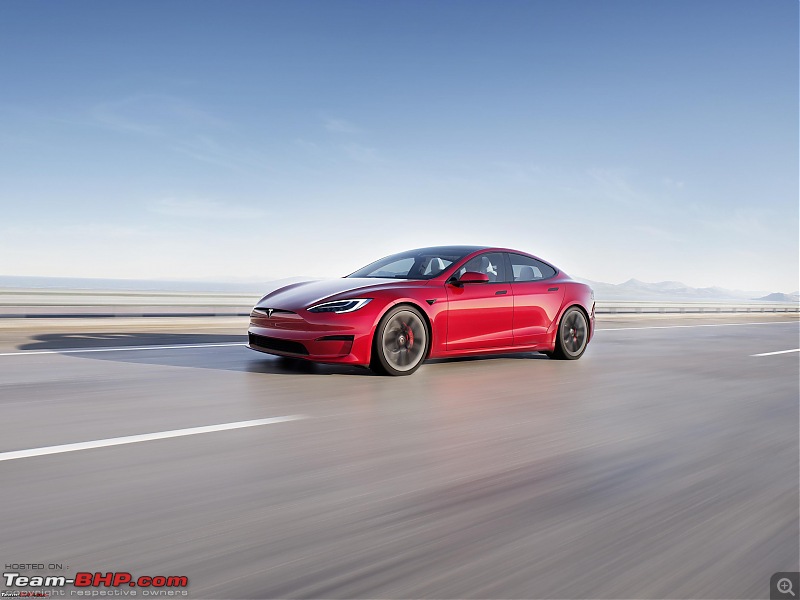 Popularity of hybrids The benefits of hybrid cars are known to everyone. However, due to the lack of options in the market and the higher entry price point, Hybrids were never accessible. Moreover, the government’s taxation hasn’t been in the favour of hybrids due to the push towards fully electric. Against all odds, Toyota still focused on Hybrids and the bets paid off. In 2023, Toyota nearly achieved an equal split between conventional and the new option of hybrid (More details). This trend will continue in the future as affordable hybrids will find buyers who are looking for more efficiency and aren’t ready to make the switch over to fully electric. 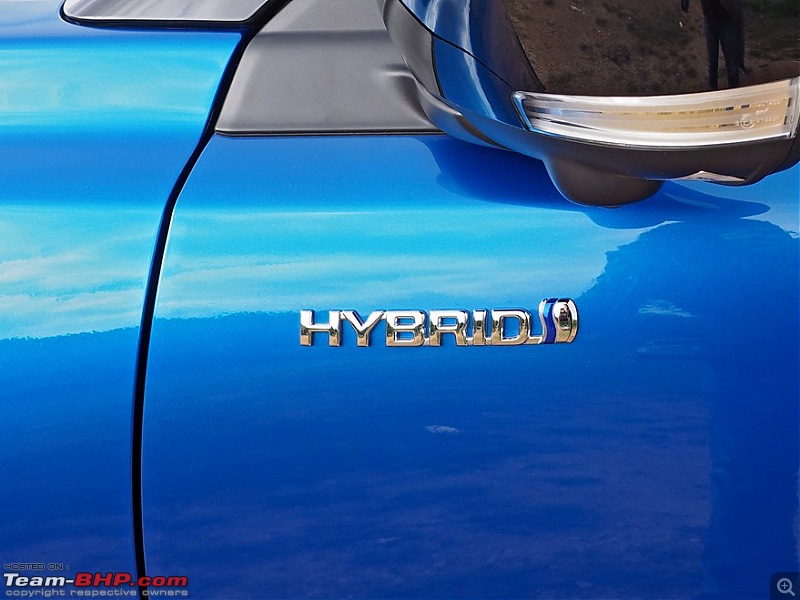 A three-way stand-off - Electric, Hybrid & Internal Combustion engines The Indian car market will most likely reach a point of stalemate between the three – Internal Combustion, Hybrid and Electric vehicles sometime in the future. The IC engines are not going to be eliminated completely in India. Given how popular Hybrid and electric vehicles are becoming, they'll be mainstream soon. Most likely we’ll see the scales balancing where all three types of cars will be competing fiercely against each other. 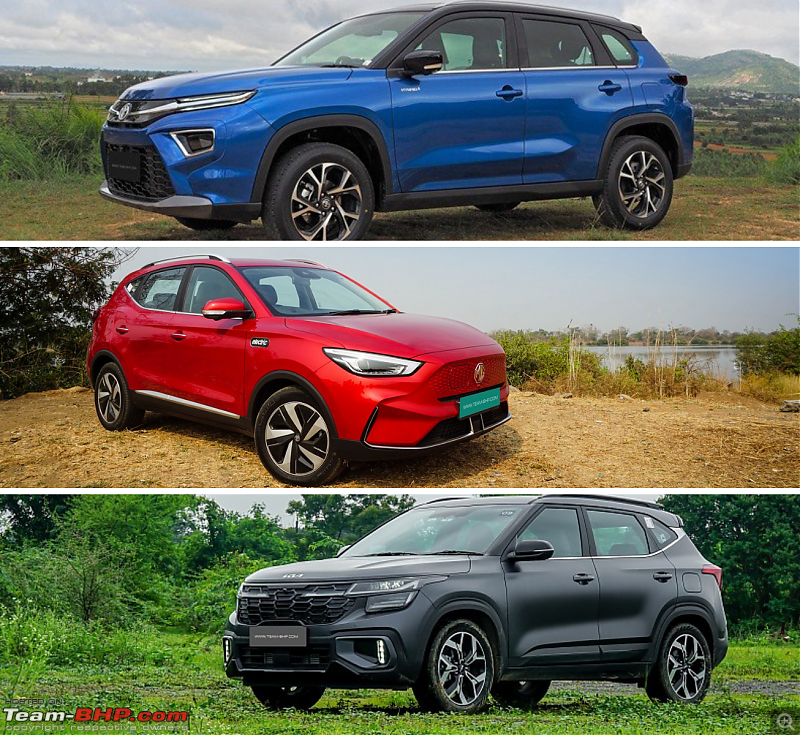 Tata & Mahindra will be even stronger Given the momentum that both Tata and Mahindra currently have, without a doubt will be even more prominent in the Indian market. The home advantage and the fact that both have focused on making capable cars at affordable prices is the key to their success. Also, looking at the future roadmap of both these companies will be a force to reckon with. 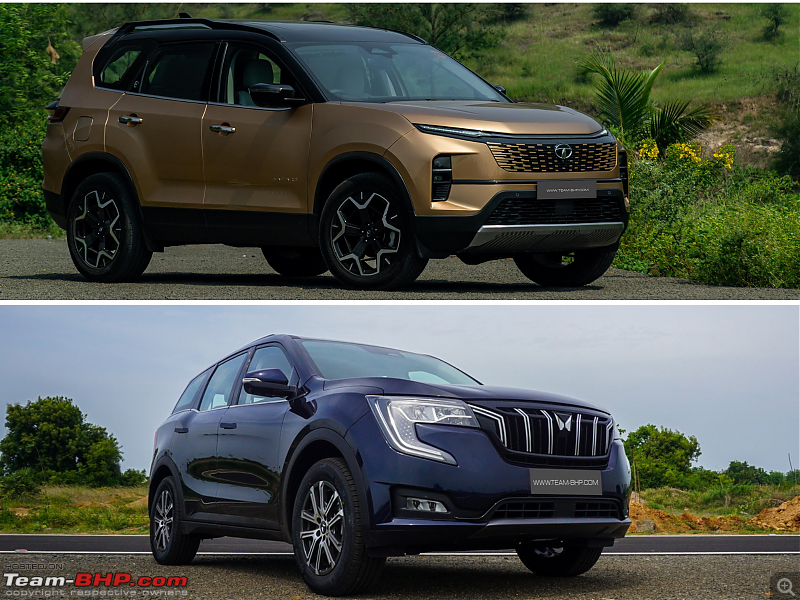 Cars will get even more expensive We’re currently in a time where India is a seller’s market. Car manufacturers have the upper hand and customers are lining up to buy cars. This is also the reason why we’re seeing the car prices soaring and this trend will continue. Also, people are moving away from affordable hatchbacks and cars with heavy cost-cutting. People are preferring SUVs and MPVs in the 15-25 lakh rupee segment. People are willing to pay for a car that is feature-loaded and an all-rounder, so this is where the action will be in the coming years. 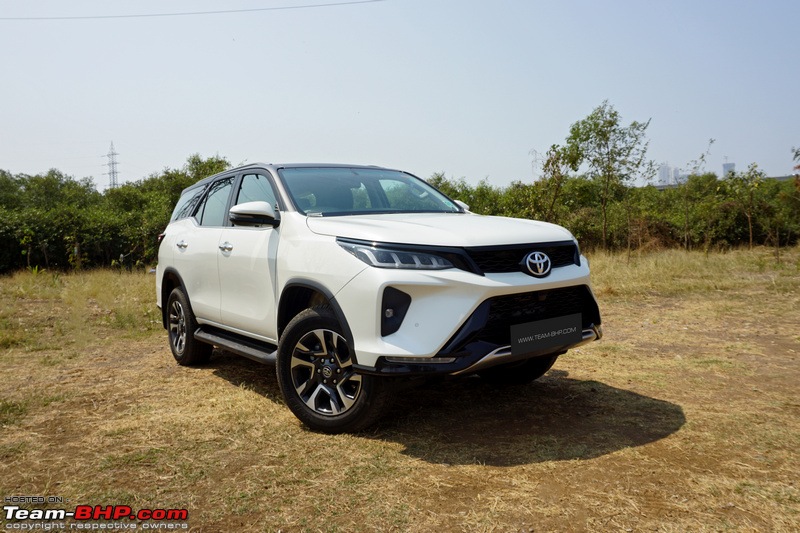 Doubling down on safety For years, safety was an aspect that was ignored on Indian roads. Be it the infrastructure or the cars themselves. Things have changed considerably now and manufacturers are offering 6 airbags as standard on most cars. Hyundai has even made 6 airbags as standard across its lineup of cars. Also with the Bharat NCAP in place, people will be paying more attention towards the safety rating of new cars. Soon, we’ll be seeing some safety features like 6 airbags, ESP, traction control, etc. becoming offered as standard across all variants even in the affordable car segment. 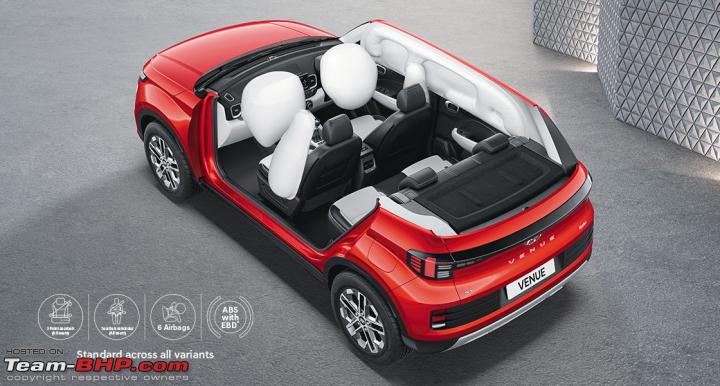 Crazy performance figures will be common Not too long ago, a 0-100 km/h acceleration time of under 10 seconds was considered as quick. Nowadays, with the advent of electric cars, that number is the standard norm. Affordable cars like the Mahindra XUV400, Tata Nexon EV and MG ZS EV have a 0-100 km/h time of under 9 seconds. And these are commuter cars! Won’t be surprised if soon we’ll start seeing Rs 20 lakh EVs that have 0-100 km/h acceleration time of 6 seconds. 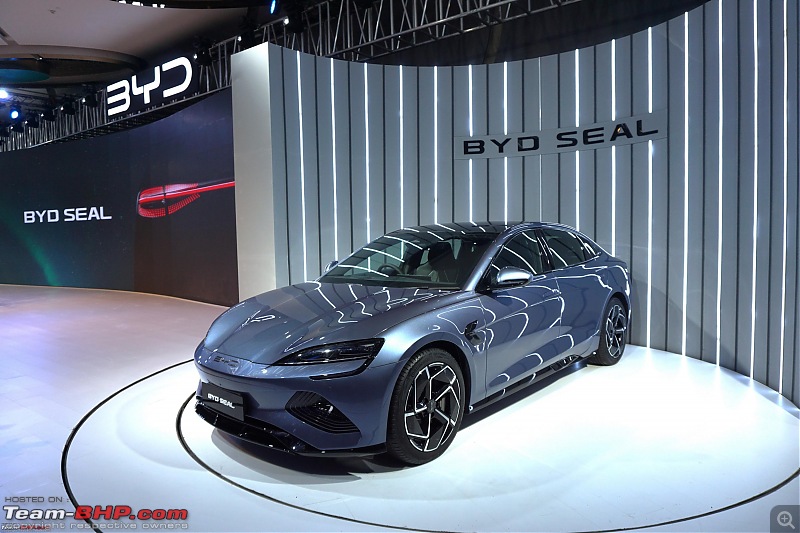 Artificial Intelligence With artificial intelligence (AI) infiltrating many aspects of our day-to-day lives, it’s only plausible that manufacturers will start integrating AI in cars. The most important integration would probably be for improving autonomous driving tech. Apart from that, AI could also be used in a user interface to make the interactive experience more seamless.  Minimalist designs The transition from classic & timeless designs to quirky & outrageous designs is what we’ve seen in recent times. People want something that looks different from the crowd and while I believe this will stay the same, people will start preferring simple and clean designs again. We’ve seen a similar trend with the logos of car manufacturers who’ve now started going 2D from 3D. Going forward I do believe we’ll be seeing a lot more minimalist designs on cars. 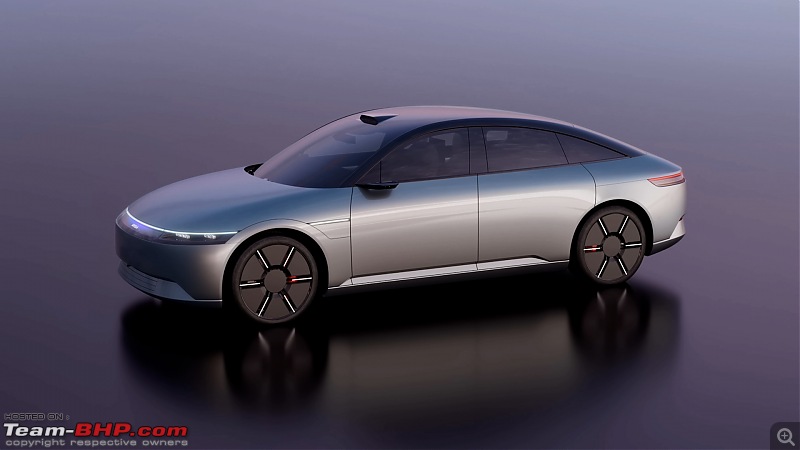 Subscription-based features Not something that will be popular among car owners, but it’s something that most manufacturers will inevitably adopt. Certain features will be offered on a subscription basis the way Tesla and BMW are doing currently. Although manufacturers will get some flak for this, I feel that this is unavoidable. 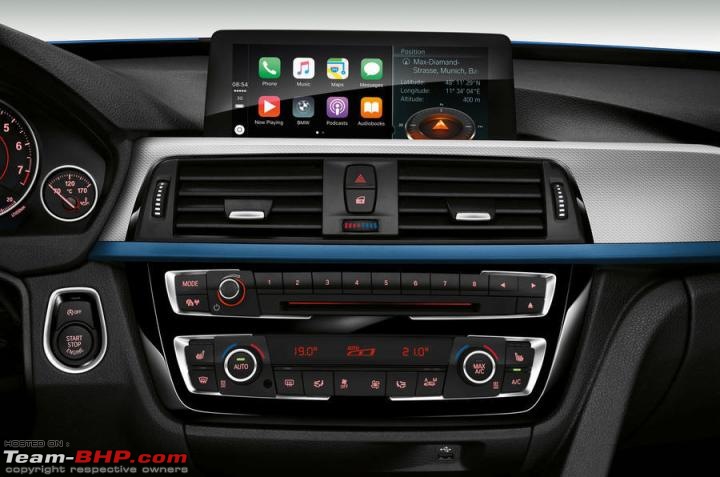 Sustainable materials Going by the current trend of using materials that are recycled or kinder to nature, the automobile industry will also most likely see an influence. There are some hints already. For instance, Tata’s latest EV showrooms focus highly on sustainability. What I predict is that we’ll start seeing sustainable materials being used in car cabins. 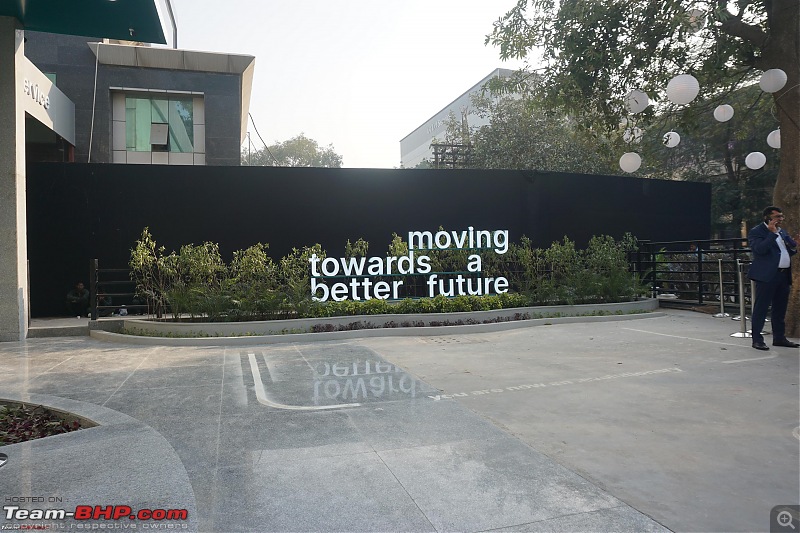 Physical buttons We’re currently in the phase where touch-sensitive buttons are being used everywhere and controls are being integrated into touchscreens. I know it’s far-fetched, but I do have a feeling that we’ll see physical buttons return for various car functions. While touch-sensitive buttons look and feel premium, most of us prefer physical buttons just for the functionality and the satisfying feedback you get from using them. 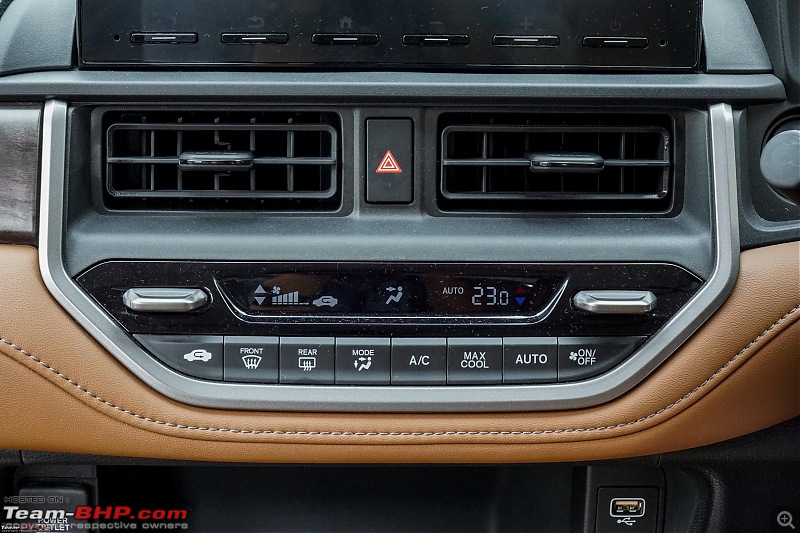 Inbuilt dashcams Just as most accessories are being offered as standard, the same would most likely happen with dashcams. We all know the importance of dashcams and manufacturers like Hyundai have started offering them in their cars so you don’t have to shop for them separately. Mahindra had a clever integration of dashcam and ADAS features in the XUV700. We should see something similar and something better being made mainstream sometime in the future.  Keyless starting procedure Something that’s catching on these days and seems like a well-thought-out feature as well. We’ve seen this on the Volvo XC40 Recharge and the MG Comet as well where you don’t need to press a push start button, but instead, just press the brake pedal, shift the transmission to D or R and off you go. No need to press the button. It's most likely that this feature will be exclusive to electric cars. 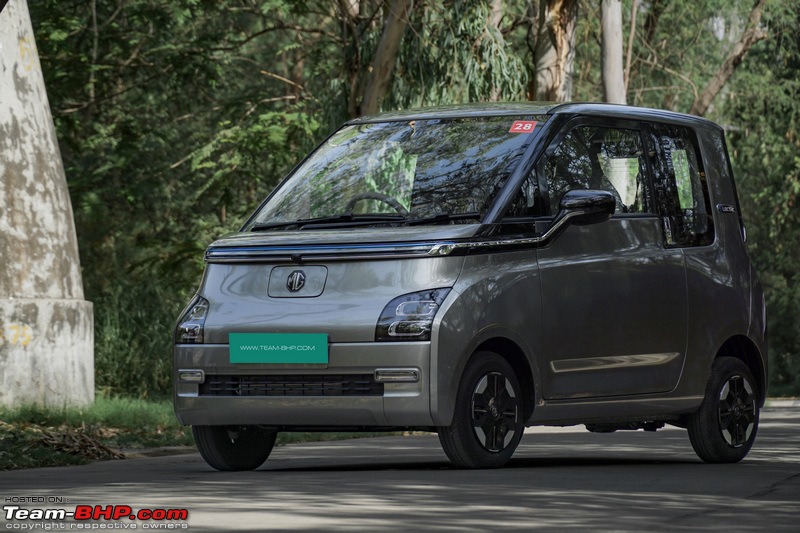 Online sale of cars Visiting a dealership and buying a car has always been an experience, and there will always be people who will prefer doing that. But with the overgrowing dependency on buying things online, I’m sure most car manufacturers will soon give the option of purchasing a car online. 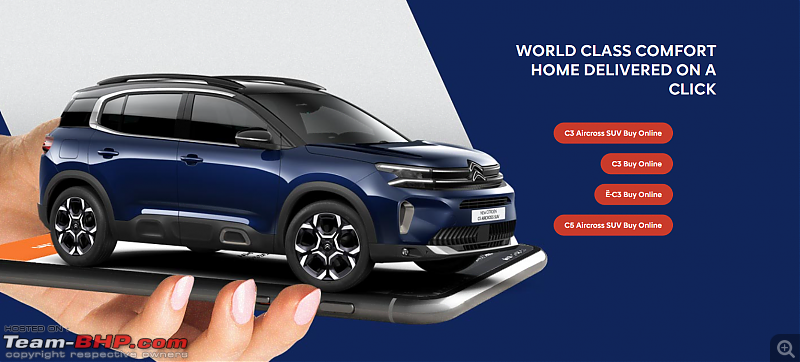 What other trends do you feel will be popular in the future? |
| |  (34)
Thanks (34)
Thanks
 |
| The following 34 BHPians Thank Omkar for this useful post: | 2nd_gear_7krpm, 400notout, AP_1812, Axe77, Bibendum90949, CentreOfGravity, deep_behera, DHARM, digitalnirvana, Dosa, Evyas, FlashMustang, GaryTSI, GTO, gururajrv, lemedico, lovetorque, NT_GT, rahul143, rajvardhanraje, raunaksaha2008, Researcher, Sangre, sanjayrozario, Seenz, shaheenazk, shanoj, sridhar-v, SRISRI_90, ssoni.1411, subratasenn, TheFonz, V.Narayan, White Aviator |
| |
| | #2 |
| Team-BHP Support  Join Date: Apr 2016 Location: Mumbai
Posts: 1,848
Thanked: 21,983 Times
| re: Predicting future automotive trends of India Thread moved out from the Assembly Line. |
| |  (2)
Thanks (2)
Thanks
 |
| The following 2 BHPians Thank Omkar for this useful post: | digitalnirvana, GTO |
| | #3 |
| Distinguished - BHPian  Join Date: Nov 2013 Location: HR51/HR29/HR26
Posts: 2,773
Thanked: 21,351 Times
| re: Predicting future automotive trends of India My take on the points raised… 1. The new EV policy is a step in the right direction, but who are going to benefit from it? Tesla setting a factory in India continues to be nothing more than a rumour, just speculation, perhaps even wishful thinking. Which other EV manufacturers are lining up to set up plants in India? The Chinese, and perhaps VinFast. 2. Hybrids have been more noise than substance at this point, where the sole success story has been the Innova HyCross, a monopoly vehicle that doesn’t really have to worry about price points + forced discouragement of diesels. Nothing game changing is going to happen in this sphere unless the government makes a major policy U turn and actually provides tax benefit on strong and plug in hybrids. That is again speculation at this point. The policy till now has been clear - EVs, not hybrids. The govt has had its fingers burnt by Maruti’s “smart hybrid gate”, and the transport minister has a history of making lofty statements. Maruti’s proposed small car series hybrid system also remains mere words as of now. Proof of the pudding will be if and when they come out with an actual vehicle and the performance, efficiency and driving experience vs price curve can be judged. Could very well be another 1.5 DDiS moment. 3. There is going to be space for all three powertrains - conventional ICE, hybrid and EV. All the more options for the buyer. Let the market forces prevail. 4. I see price rationalisation happening in the short-middle term in the premium segment. It will be a necessity to survive. 50L+ rupee vehicles are terrible value for money, customers are getting aware that they are being short charged and competition from the likes of Hyundai-Kia and the Chinese EVs will only increase. At the same time, I expect to see ever reducing volumes from the sub 10L rupee segment. Margins are wafer thin, and hardly anyone can compete with Maruti and Tata here. Already, Punch is the new Alto/WagonR. 4. EVs are going to democratise performance. Already, Nexon EV LR, XUV400 and ZS EV are quicker than all relevant ICE cars at all legal speeds. 500+ bhp and 0-100 in 3.xx seconds is supercar performance. Available at 55L with the BYD Seal, when BMW wants you to buy a 135bhp 1.5liter for more. Anyone who experiences a good EV drivetrain will be a convert for life. This will mostly affect the mass market cars, your 1.0 and 1.2 decades old and super lame NA engines. Difference is just ridiculous. 5. Safety will get more prominence from buyers, which is a great thing. Making safety mass market is Tata Motor’s single biggest contribution to the Indian market. The other brands are being forced to give up the excuses and shape up, or step out. 6. Sustainable materials getting highlighted is more marketing and PR than anything else. Not relevant to any potential buyer. They are just trying to greenwash themselves. 7. There is an increasing demand for return to physical buttons and knobs, especially for the most commonly used features. This entire trend of touch everything was started by Tesla which basically lives in its own universe. Already, manufacturers are starting to revert back based on customer feedback and regulatory hurdles. Only a matter of time these changes happen in India also, we are just a few years behind the curve. 8. I don’t see online sales of cars taking off in India. Cars are the second biggest purchase most people make in their lives, and are a momentous occasion for the entire family. The showroom visits, test drives, touching and feeling, deliberations within the house, they are all an intrinsic part of the car buying experience and will continue to remain so. Indian market is never going to be detached enough to make such a personal and big ticket purchase online, without seeing and feeling it. The car purchase is not becoming like an appliance purchase anytime soon. Last edited by Shreyans_Jain : 20th April 2024 at 12:12. |
| |  (26)
Thanks (26)
Thanks
 |
| The following 26 BHPians Thank Shreyans_Jain for this useful post: | AdhikR, arakhanna, ashivas89, Bibendum90949, CentreOfGravity, deep_behera, digitalnirvana, Dosa, Eddy, ferrarirules, FlashMustang, GaryTSI, GTO, lovetorque, NomadSK, Omkar, pgsagar, rajvardhanraje, ramki.grandhi, Ravi Parwan, SaiChaithanya, sanjayrozario, shanoj, ssoni.1411, subratasenn, vb-saan |
| | #4 |
| Team-BHP Support  | Re: Predicting future automotive trends of India I really hope we see more strong hybrids making their way to the roads. In my opinion it's the best of both worlds. A full electric always has this doubt of being stuck without juice. But a bydrid will have the answers. But I see strong lobbies for both the camps and India seems tilting to full EV. I do hope the hybrid also finds its foothold in this market. The 30-50L market in my opinion is a huge bracket where many such products can reside. Last edited by ampere : 22nd April 2024 at 07:09. |
| |  (4)
Thanks (4)
Thanks
 |
| The following 4 BHPians Thank ampere for this useful post: | ashis89, Omkar, rajvardhanraje, vb-saan |
| | #5 |
| BHPian Join Date: Apr 2020 Location: Ranchi
Posts: 32
Thanked: 92 Times
| Re: Predicting future automotive trends of India In 10-15 years time, most conventional car companies will be extinct. In medical terms we have small antigenic drifts and a big and sudden antigenic shift. Similarly battery technology is improving in small increments currently. One big breakthrough and Toyota is ripe for becoming a Kodak. |
| |  (2)
Thanks (2)
Thanks
 |
| The following 2 BHPians Thank AseemYadav for this useful post: | Omkar, YashOjha15 |
| | #6 |
| BHPian Join Date: Mar 2016 Location: Faridabad, HR
Posts: 199
Thanked: 350 Times
| Re: Predicting future automotive trends of India Very good points from several of our esteemed members. I hold a slightly divergent view. I believe that the EV bandwagon is likely to take off. The major stumbling block for EV adoption is not the technology but the following factors - price, convenience, peace of mind, resale So my predictions for the future
|
| |  (3)
Thanks (3)
Thanks
 |
| The following 3 BHPians Thank Ravi Parwan for this useful post: | ferrarirules, Omkar, rajvardhanraje |
| | #7 |
| Senior - BHPian | Re: Predicting future automotive trends of India Over the coming decade, when every price point is being serviced by manufacturers with an ‘suv’ and our roads are a sea of squared-off cars with horizontal drls on the hood and headlamps in the bumper, we will start to see the resurrection of the sedan with sleek lines and proper ‘styling’  people that used to stand out by buying a Thar or a Safari, will then want to own a properly styled low-slung sedan. people that used to stand out by buying a Thar or a Safari, will then want to own a properly styled low-slung sedan.Last edited by IshaanIan : 22nd April 2024 at 03:13. |
| |  (4)
Thanks (4)
Thanks
 |
| The following 4 BHPians Thank IshaanIan for this useful post: | fordday, Omkar, PWRUP, RunSam |
| | #8 |
| BHPian Join Date: Sep 2010 Location: Bangalore
Posts: 185
Thanked: 2,722 Times
| Re: Predicting future automotive trends of India I see the following lifestyle trends happening in India that will influence the automotive buying trends : It will become easier to commute intra-city by a mix of public and app based services than by car. Trains will be super crowded but it will still be less of a hassle compared to cars. We youngsters  would prefer this mode as we can be immmersed in our phone. would prefer this mode as we can be immmersed in our phone. Inter-city long distance travel is going to be gorgeous as highways and expressways are being built at a rapid pace. Inter-city car trips are going to be way more convenient than by trains/bus/flights i.e your family trips around 1000kms will be by car. Reliability and safety for long distance travel are going to key differentiators. On this score, EVs are going to lose out to Hybrids. Bigger cars like Hycross, XUV 700, or Safari will rule the 1 car garage households; all the more better if it is a hybrid. Some people who have the luxury of extra parking and charging infra will add a Tiago/Punch like EVs as their city beater cars. ICE two wheelers, except for enthusiast/performance bikes, will be wiped out. Last edited by DigitalOne : 22nd April 2024 at 09:14. |
| |  (2)
Thanks (2)
Thanks
 |
| The following 2 BHPians Thank DigitalOne for this useful post: | Omkar, PWRUP |
| | #9 |
| BHPian Join Date: Feb 2021 Location: Bangalore
Posts: 161
Thanked: 551 Times
| Re: Predicting future automotive trends of India A Number of Software/Electronic companies are also trying their hand to get into Smart Car business. Recent Example of Mi showcasing its car, Apple/Google working on their car projects. Sooner or later other manufacturers like Vivo, Oppo, Samsung etc will start complete outsourcing of car manufacturing to introduce smart mobility. |
| |  ()
Thanks ()
Thanks
 |
| | #10 | |
| BHPian Join Date: Dec 2020 Location: Pune
Posts: 175
Thanked: 455 Times
| Re: Predicting future automotive trends of India Quote:
| |
| |  (1)
Thanks (1)
Thanks
 |
| The following BHPian Thanks Nikhil Beke for this useful post: | IshaanIan |
| | #11 | |
| Senior - BHPian | Re: Predicting future automotive trends of India Quote:
First mass-produced Hybrid was launched in 1997 by Toyota itself. Prius. But we haven't heard much about hybrids since. Why haven't hybrids caught on like EVs? The hybrid noise started only after EV sales picked up in India. Having no EV in their product range (in India), Japanese jumped on this bandwagon. | |
| |  ()
Thanks ()
Thanks
 |
| |
| | #12 | |
| Distinguished - BHPian  Join Date: Sep 2008 Location: --
Posts: 3,553
Thanked: 7,266 Times
| Re: Predicting future automotive trends of India Quote:
The second spot will be taken by EVs for sure. But, I don’t think EVs will outsell ICE cars in our country to take the top spot even in the next decade. Sure, they will sell more, but not at the cost of ICE cars. If anything, EVs will mostly be secondary vehicles in the more affluent households. If you look at developed markets (which were dreaming of going fully electric by 2030) are now seeing EV sales plummet amid stagnating demand. | |
| |  ()
Thanks ()
Thanks
 |
| | #13 |
| Newbie Join Date: Mar 2024 Location: Ghaziabad
Posts: 1
Thanked: 0 Times
| Re: Predicting future automotive trends of India Quite an insightful thread! In my opinion, Hybrids are going to give a very tough competition to ICE and EVs as well. Considering the rapid rate in development of Indian roads and infrastructure, EVs certainly will not be able to match the fast charging infrastructure. Also, battery prices are not coming anytime soon. Even if the government does not reduce the tax burden on hybrids, the price will still be comparable to the automatic variant of ICE powertrain with the starting acceleration performance much better than the ICE vehicle. Once the Indian customer understands the below mentioned advantages associated with the Hybrids, they will definitely lean towards it: 1. In terms of Life cycle assessment, HEVs are better than BEVs and ICE vehicles. 2. Better and smooth acceleration performance. 3. BEVs range decreases a lot with air conditioning system on. (From what I know, government is planning to standardize the measurement of fuel consumption with air conditioning system on. (Just like US-EPA) 4. Price range is comparable to the automatic variants of ICE vehicles with almost 15-20% range improvements. 5. No range and charging related anxiety on long routes of travel. Japanese manufacturers are pushing the Indian government a lot to reduce the tax burden on strong hybrids. Let's see if that happens in the near future or will the government maintain its stance on the adoption of EVs. |
| |  ()
Thanks ()
Thanks
 |
| | #14 |
| BHPian Join Date: Aug 2017 Location: Faridabad
Posts: 721
Thanked: 2,533 Times
| Re: Predicting future automotive trends of India Thanks Omkar for starting this. First of all, I will like to point out to everyone, this is not another EV vs Hybrid debate thread. This is more a overall automotive trends in India and our thoughts on what might catch on and what might not. More EV manufacturers will come to India Govt has laid down the policy which makes it possible for EV manufacturers to invest in India, companies like Vinfast are already working on taking advantage. Even Tata is thinking about it for making JLR EVs in India. Although the policy was laid out to attract Tesla, they have not reacted till now. They are stuck in a bit of firefighting due to stoppage of Tesla Cybertruck shipments and a consequent recall. Popularity of hybrids This all depends on much the technology is pushed to the mass market. As of now, Toyota, Maruti or Honda have not shown signs of democratizing the technology to more mass market cars (Swift or Baleno or Fronx). Honda missed the bus by not offering in Elevate, their competitor to the likes of Hyryder and Grand Vitara A three-way stand-off - Electric, Hybrid & Internal Combustion engines From an Indian standpoint, this debate is going to go on till the time companies like Toyota, Maruti bring mass market EVs. Hybrids only make sense if they are Plugin hybrids but none of large manufacturers in India are even thinking about a plugin hybrid. ICE will face more stringent emission norms making it difficult for manufacturers to continue developing ICE engines especially diesel engines. Tata & Mahindra will be even stronger I think this trend will continue. For Tata, they are making feature packed safe products at competitive prices. For Mahindra since the time that they have positioned themselves and SUV manufacturer of the country. Their products have been impeccable. They are constrained by manufacturing capacity for which they are themselves to be blamed as they missed opportunities to buy Ford's plants. Cars will get even more expensive According to me, this is a function of inflation. Until or unless there is an economic recession, automobiles will never get cheaper. Doubling down on safety Tata started the safety band wagon and buyers appreciated the move. Today the market is getting more and more aware of the safety ratings of cars and making their purchase decision accordingly. Just today there are safety test reports for Honda Amaze, Kia carens and Mahindra Bolero Neo were posted by GNCAP and all of them have failed miserably. Crazy performance figures will be common Lack of gears and instant torque in a EV makes it easy to deliver super performance numbers. Artificial Intelligence Artificial intelligence in automobile industry has one use case that is self driving cars. There is company in India which has made a self driving Bolero but commercializing the technology in India is pretty difficult. We need to see mass adoption of ADAS and it success before adoption of FSD Minimalist designs Body type trend is SUVs. From a design language standpoint, people want futuristic looking cars inside and outside. See the interiors of an Creta or exterior of Tata Nexon or to be launched Mahindra 3X0. Subscription-based features This is something which will only find a few takers and that also only in the connected car space. Alexa - "Cool my car" is cool but not something which is going to catch on soon. Sustainable materials This is something industry needs to look into holistically. Today there is clothing available which shows how much of recycled material is used in making the product or is made from sustainably grown cotton. Why not the same thought process for automobiles. The nearest example of sustainability in automobiles I remember is Bajaj V - They reused INS Vikrant's steel to make the bike Physical buttons Clean minimalist interior is what was started by Tesla as a trend and a lot of manufacturers tried copying the same. They expected the users to use voice command to change stuff. I don't think it has really caught on. Physical buttons for climate control are still needed at a minimum. Inbuilt dashcams I think this is the need of the hour with so many untoward incidents happening on the Indian roads Keyless starting procedure It is a gimmick. I was a bit scared with this feature. Sometimes you are in to clean the interior or a car cleaner guy is cleaning the inside of car. You wouldn't want it to switch on by itself. Online sale of cars It is difficult for this to catch up in India. For multiple reasons - 1. Manufacturers in India don't allow customization like it is available outside India. 2. Manufacturers in India don't share inventory details of models and their config available online with their dealerships. |
| |  ()
Thanks ()
Thanks
 |
 |


 )
)